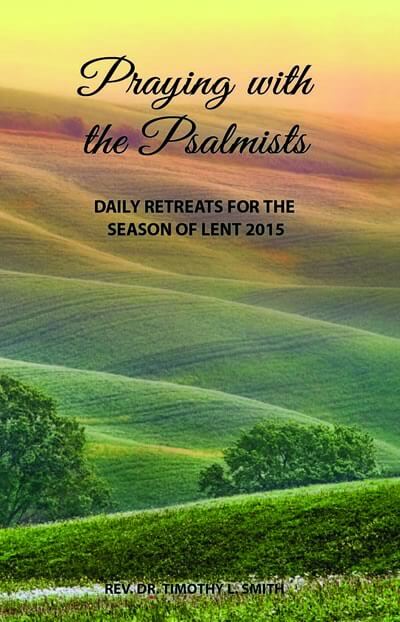 A Good Place To Begin
A Good Place To Begin
Blessed is the one
who does not walk in step with the wicked
or stand in the way that sinners take
or sit in the company of mockers,
but whose delight is in the law of the Lord,
and who meditates on his law day and night.
That person is like a tree planted by streams of water,
which yields its fruit in season
and whose leaf does not wither—
whatever they do prospers.
Not so the wicked!
They are like chaff
that the wind blows away.
Psalm 1:1-4
On this first day of “Praying with the Psalmists” it is appropriate that we begin where the Book of Psalms begins, with a meditation on meditation. We meditate or reflect on many things throughout the day and night, but this first of the 150 psalms wants us to meditate on God’s Word. That is because meditating on God’s Word is the way to a blessed or truly happy life. While many people might despair of ever living a really blessed life, this first psalm points the way: “Blessed is the one…who meditates on his law day and night.”
Do not be turned off by thoughts about meditating day and night on laws, rules, and regulations. That is not what the psalmist is talking about! The Hebrew word torah, translated as “law” in our text, has a very different meaning from our English word “law”. The Hebrew word for “law” comes from a root word meaning “to teach”. Torah has the idea of a finger pointing to the right pathway to take. We do best to think of God’s torah as God’s teaching, His gracious finger pointing the path to the fullness of life: “Go this way!” Torah is often translated in the Hebrew Scriptures as “teaching” a child, pointing him in the right direction (Proverbs 1:8; 6:20, 23; 3:1; 4:2).
While this word torah originally referred to the first five books of the Hebrew Bible (the Books of Moses), in time the torah came to encompass all of God’s inspired instruction. Old Testament theologian John Eaton describes the torah as “the teaching of the Lord in person, imparting his word and his will, his guidance and his grace and, at the deepest level his very self.” (Meditating on the Psalms) It is little wonder that the psalmists took such great delight in God’s torah. Ponder their joy in torah:
- 19:7 “…the torah of the Lord is perfect, refreshing the soul.”
- 119:18 “Open my eyes that I may see wonderful things in your torah.”
- 119:70 “I delight in your torah.”
- 119:72 “The torah from your mouth is more precious to me than thousands of pieces of silver and gold.”
- 119:97 “Oh, how I love your torah! I meditate on it all day long.”
- 119:174 “…your torah gives me delight.”
This treasure of God’s instruction is something that the psalmists delight in meditating on day and night. A woman once told me that she did not know how to meditate. I asked her if she knew how to worry. When she said that she did in fact know how to worry, I told her she then knew how to meditate: to go over and over something in your mind.
The Hebrew word translated as “meditate” means to “mutter” or to “talk to oneself”. It denotes the process of saying words over and over again to ourselves. Perhaps you have seen Jews at Jerusalem’s Wailing Wall with heads bobbing as they “mutter” the torah to themselves and to God. As we meditate we are repeating the words to ourselves, reflecting and pondering their meaning for our lives.
Meditating on God’s Word is often compared to a cow chewing its cud. First the cow fills its stomach with grass, then settles down to quietly chew and re-chew. As it chews again and again it is moving the grass through the compartments of its stomach, assimilating nutrients and transforming them into rich milk. As we “chew” and “re-chew” God’s Word we are digesting it spiritually, finding ourselves transformed by the Spirit’s power.
This first of the Book of Psalms is divinely inspired to get us off to a good start by meditating on God’s instruction day and night. The psalm shows the two pathways open to us: a pathway leading to the blessed life, or a pathway leading to death.
To life!
READ REFLECT RESPOND REST
RECORD (optional)


 A Good Place To Begin
A Good Place To Begin
